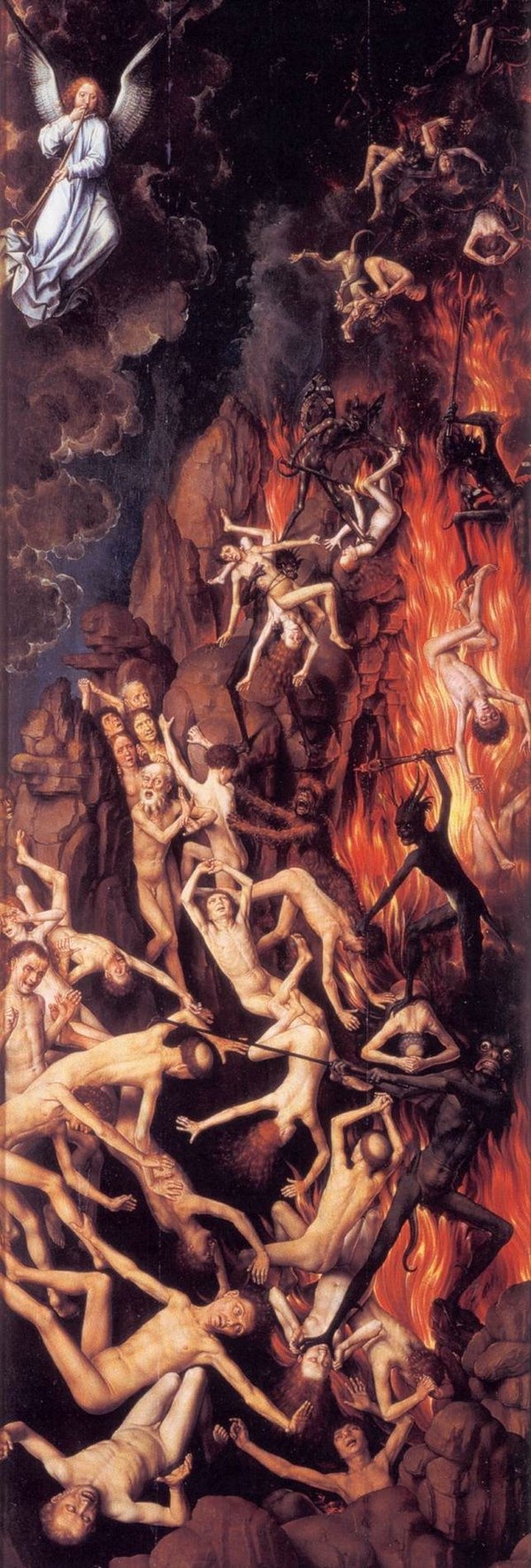
Liber scriptus proferetur
In quo totem continetur
Unde mondus judicetur
Judex ergo cum censebit
Quidquid latet, apparebit
Nil inultum remanebit
Lacrimosa dies illa
Qua resurgit ex favilla
Judicandus homo reus
Huic ergo parce, Deus?
The written book will be brought forth,
in which all is contained,
from which the world shall be judged.
When therefore the judge will sit,
whatever hides will appear:
nothing will remain unpunished.
That tearful day,
by which from the ashes resurrects
the guilty man who is to be judged.
Spare him therefore, God.
—Tommaso da Celano, In commemoratione omnium animarum (excerpt) (ca. 1240)
Tommaso da Celano’s famous lines about the Judgment Day were later, though likely in a changed form, incorporated into the liturgy as Dies Irae. They are a reflection on judgment and self-judgment, an activity that all should undertake as one year ends and the next begins, whether inspired by religion or simple self-reflection.
Listen to the Dies Irae in a traditional Gregorian chant, and then to the setting of the Verdi Requiem in a performance by the Berlin Philharmonic under Herbert von Karajan:


